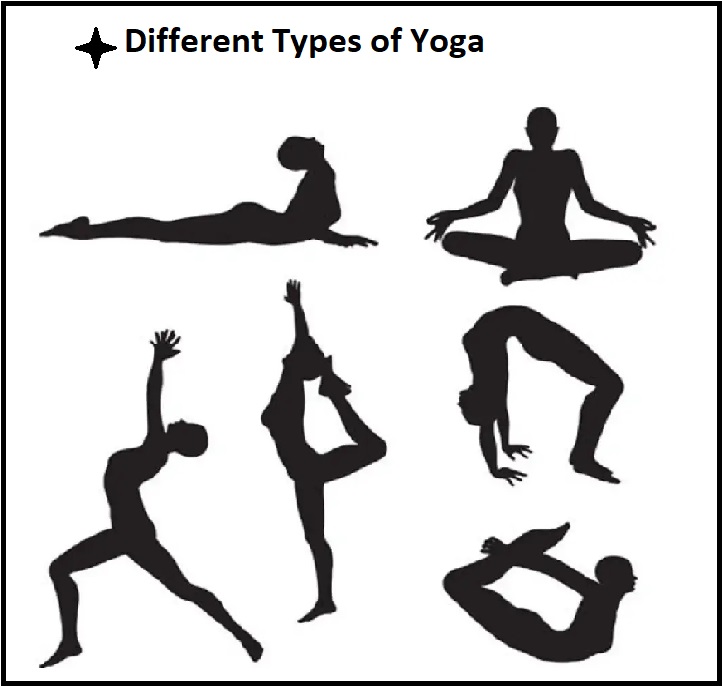Introduction
In the fast-paced world we live in today, stress, anxiety, and physical fatigue have become common challenges. Amidst this chaos, yoga emerges as a time-tested solution that not only rejuvenates the body but also nurtures the mind and soul. Understanding each Type of yoga can help individuals find the style that best suits their needs and lifestyle. This article explores various types of yoga and how they contribute positively to our everyday lives, emphasizing the broad spectrum of yoga health benefits.
1. Hatha Yoga – The Foundation of All Forms
Type of yoga: Hatha yoga is often considered the root from which other yoga styles have grown. It focuses on basic postures and breathing techniques.
Benefits:
Hatha yoga is ideal for beginners due to its slow pace and focus on foundational poses. It enhances flexibility, improves posture, and reduces stress. Practicing Hatha yoga daily can lead to improved concentration, better sleep, and a calm mind.
Daily life application: If you’re new to yoga or want a gentle routine to start or end your day, Hatha yoga is a perfect choice. Just 20 minutes a day can improve mental clarity and physical balance.
2. Vinyasa Yoga – Flowing Movements with Breath
Type of yoga: Vinyasa yoga links movement with breath in a continuous flow. It’s more dynamic and physically intensive than Hatha yoga.
Benefits:
This form of yoga builds endurance, strength, and flexibility. It’s an effective cardiovascular workout and is known to aid in weight loss. The fluid movement also makes it a moving meditation, reducing mental clutter and improving emotional regulation. Lose Weight Naturally: Easy Yoga and Diet Tips.
Daily life application: Great for people with a busy lifestyle who want both exercise and mindfulness in a short amount of time. A morning Vinyasa session can energize your entire day.
3. Ashtanga Yoga – Structured and Disciplined
Type of yoga: Ashtanga yoga follows a fixed sequence of postures performed in a specific order. It’s physically demanding and follows a rigorous discipline.
Benefits:
It promotes detoxification through sweating, strengthens muscles, and enhances focus and willpower. This style is beneficial for people who thrive on routine and structure. Among the lesser-discussed yoga health benefits of Ashtanga is its capacity to foster patience and self-discipline.
Daily life application: Ideal for individuals seeking a rigorous physical routine with mental discipline. Regular practice enhances both physical stamina and mental resilience.
4. Iyengar Yoga – Precision and Alignment
Type of yoga: Iyengar yoga is known for its attention to detail and alignment. It often uses props like blocks, straps, and bolsters.
Benefits:
Perfect for injury recovery or people with mobility issues. It improves posture, increases stability, and teaches body awareness. It is therapeutic and encourages mindful movement, one of the core Yoga Health Benefits often overlooked in more dynamic styles.
Daily life application: Best for those recovering from injury, elderly practitioners, or anyone wanting to understand postural alignment better. Practicing a few key poses with proper alignment can relieve back pain and boost mobility.
5. Bikram Yoga – Detox Through Heat
Type of yoga: Bikram yoga is practiced in a heated room (around 105°F/40°C) with a specific sequence of 26 poses and two breathing exercises.
Benefits:
The heat helps in flushing toxins from the body through sweat, increases flexibility, and burns calories. It also builds mental endurance. However, hydration is key to practicing this form safely.
Daily life application: Ideal for people looking to detox, improve cardiovascular health, and lose weight. Practicing in a controlled environment builds mental toughness that carries over to daily challenges.
6. Kundalini Yoga – Awakening Inner Energy
Type of yoga: Kundalini yoga is a spiritual practice that combines movement, breathwork, chanting, and meditation to awaken inner energy.
Benefits:
Promotes spiritual awareness, emotional balance, and creativity. It also strengthens the nervous system and balances the chakras, contributing to deep emotional healing and resilience.
Daily life application: Suitable for those seeking spiritual growth and emotional clarity. Morning or evening Kundalini practices can help center your thoughts and intentions for the day or aid in unwinding at night.
7. Yin Yoga – Deep Tissue and Stillness
Type of yoga: Yin yoga involves holding passive poses for extended periods, typically 3 to 5 minutes, targeting connective tissues and joints.
Benefits:
It enhances joint mobility, reduces stress, and promotes relaxation. Yin yoga activates the parasympathetic nervous system, making it incredibly restorative.
Daily life application: Perfect for winding down after a long day. Just 20 minutes of Yin yoga in the evening can drastically improve sleep quality and reduce accumulated tension.
8. Restorative Yoga – Healing and Recovery
Type of yoga: Restorative yoga uses props to support the body in restful poses, often held for 10–15 minutes each.
Benefits:
Ideal for relaxation, stress relief, and healing. It aids in recovery from illness or injury and is especially beneficial for people experiencing burnout, fatigue, or chronic stress.
Daily life application: This form can be practiced before bed or on rest days. The calming nature of restorative yoga nurtures the body and mind, making it easier to handle everyday stress.
Yoga Health Benefits in Everyday Life
Incorporating any type of yoga into your routine brings a wide range of yoga health benefits, including:
- Improved Flexibility and Strength: Regular yoga practice improves range of motion and builds muscular strength.
- Enhanced Mental Clarity: Through mindfulness and meditation, yoga reduces stress and sharpens focus.
- Boosted Immunity: Breathing exercises and detoxifying movements help strengthen the immune system.
- Better Sleep: Calming practices like Yin or Restorative yoga help combat insomnia and improve sleep quality.
- Emotional Balance: Yoga encourages inner reflection, reducing symptoms of anxiety and depression.
Posture and Alignment: Styles like Iyengar yoga promote healthy alignment, reducing risk of injury and pain from poor posture.
Conclusion
Whether you’re looking for spiritual growth, a fitness routine, or a way to relax after a stressful day, there’s a type of yoga that suits your needs. The beauty of yoga lies in its versatility and adaptability—no matter your age, fitness level, or life situation, yoga can become an integral part of your daily life. By understanding the different types and their unique benefits, you can make an informed choice to harness the holistic yoga health benefits that promote long-term physical and mental wellness with Natural Health News.









